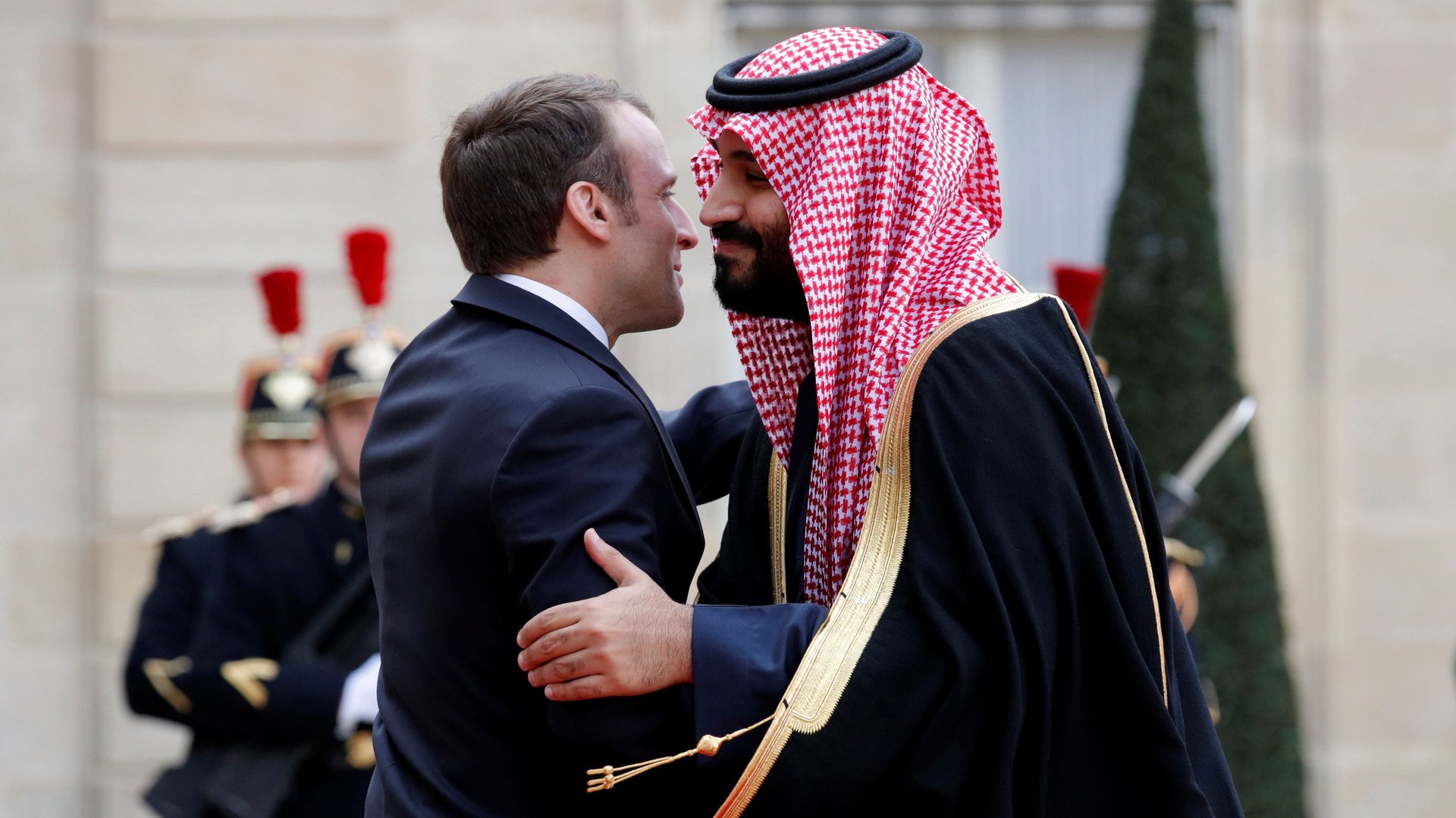Despite the murder of Jamal Khashoggi, most countries continue to sell arms to Saudi Arabia
Saudi journalist Jamal Khashoggi visited the Saudi Arabian consulate in Istanbul, Turkey, on Oct. 2, 2018, to pick up some documents he needed for his upcoming marriage. That day, he disappeared.


Saudi journalist Jamal Khashoggi visited the Saudi Arabian consulate in Istanbul, Turkey, on Oct. 2, 2018, to pick up some documents he needed for his upcoming marriage. That day, he disappeared.
The ensuing international crisis has pitted Western countries against their traditional Middle Eastern ally, Saudi Arabia, and especially its charismatic young leader, crown prince Mohammed bin Salman (MbS)—who has been accused of knowing about, or even orchestrating, what is believed to be a premeditated political assassination of a government critic.
And yet, despite a public outcry from the leaders of most Western nations about the murder of a journalist, it appears very few countries have moved to punish Saudi Arabia, either by imposing sanctions or by putting a stop to very lucrative arms contracts.
Which countries sell arms to Saudi Arabia?
Germany is the only major US ally to date to suspend all arms sales to Saudi Arabia over Khashoggi’s murder. German economy minister Peter Altmaier called on other European Union members to take similar action, saying that his country’s decision “will not have any positive consequences if we halt arms exports but other countries at the same time fill the gap.” And earlier this week, the European Parliament passed a non-binding resolution urging a European Union-wide arms embargo on Saudi Arabia in response to Khashoggi’s murder.
But so far, individual EU nations have not followed suit. The leaders of Britain and France, the two largest European exporters of weapons to the Saudis, have condemned the killing, but have stopped short of suspending arms sales. In fact, French president Emmanuel Macron said Friday (Oct. 26) that he saw no link between arms sales and the assassination. “That’s pure demagoguery to say ‘we must stop arms sales,'” he said at a news conference in Slovakia. “It’s got nothing to do with Mr. Khashoggi.”
Meanwhile, Canadian prime minister Justin Trudeau has brought up the possibility of suspending the federal permits that allow the export of a massive sale of large armored vehicles (LAVs) to Saudi Arabia, but has stopped short of canceling the LAV contract altogether, saying his country would incur a $1 billion penalty from the Saudis for doing so.
US allies could impose a significant financial penalty on Saudi Arabia—if they chose to do so. The UK exported at least $1.4 billion worth of arms and equipment to Saudi Arabia in 2017, according to
, but this number is probably underestimated, given the British government’s use of an
that makes tracking arms sales more difficult. And in 2017, the French government approved more than $14.7 billion of potential arms sales to the Saudis, and Germany authorized exports worth about $290 million, according to the Post.
It’s difficult to expect US allies to lead the way when even the US is continuing to sell arms to the Saudis, despite the fact that Khashoggi was a US resident, with three American children. Saudi Arabia has been the single biggest buyer of US arms since 2013—by far. As such, President Trump has repeatedly ruled out suspending arms exports to the kingdom, despite bipartisan calls to do so, invoking the economic toll of cancelling what he insists is a $110 billion arms deal with the Saudi government.
But Trump’s figure number is highly inflated, since it includes a memorandum of intent that has yet to materialize, as well as deals struck under the Obama administration. Moreover, a Vox analysis has shown that canceling weapons sales to Saudi Arabia won’t really hurt US jobs, as Trump has claimed.